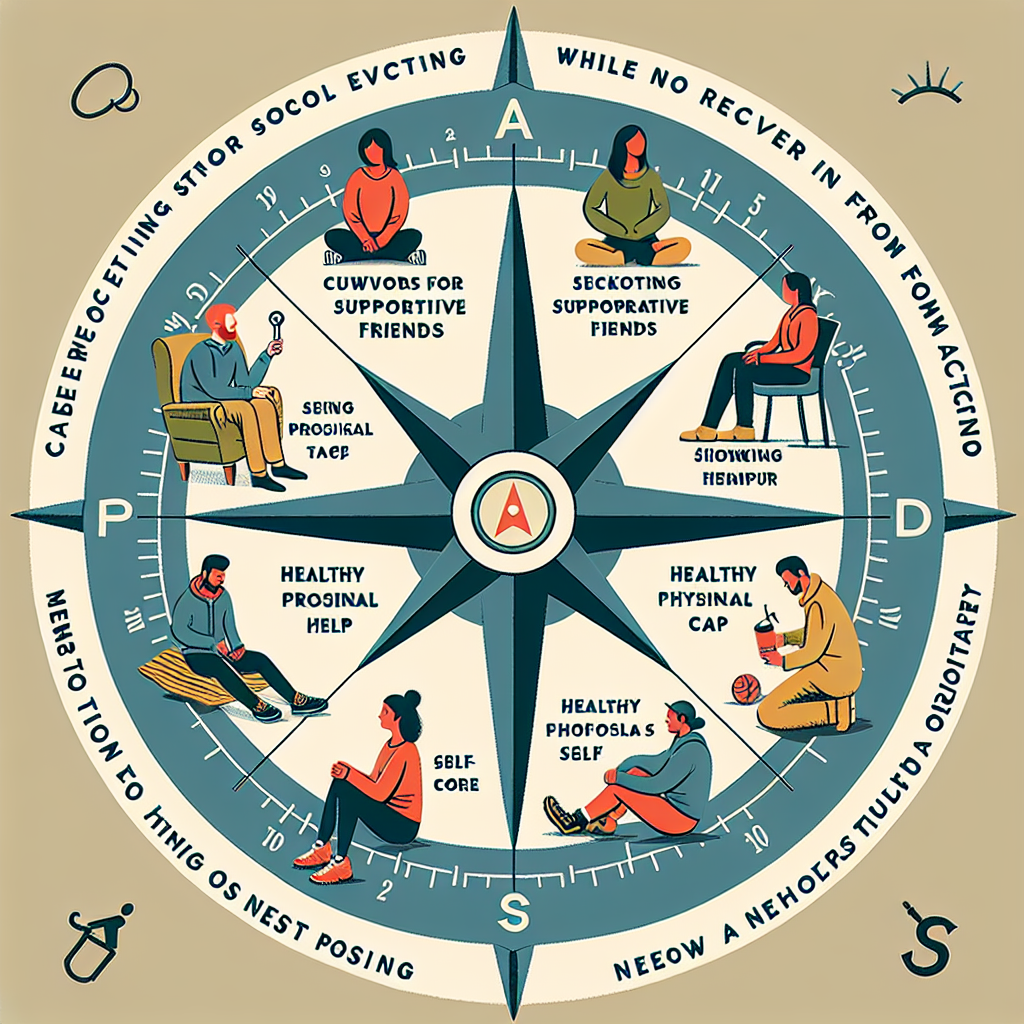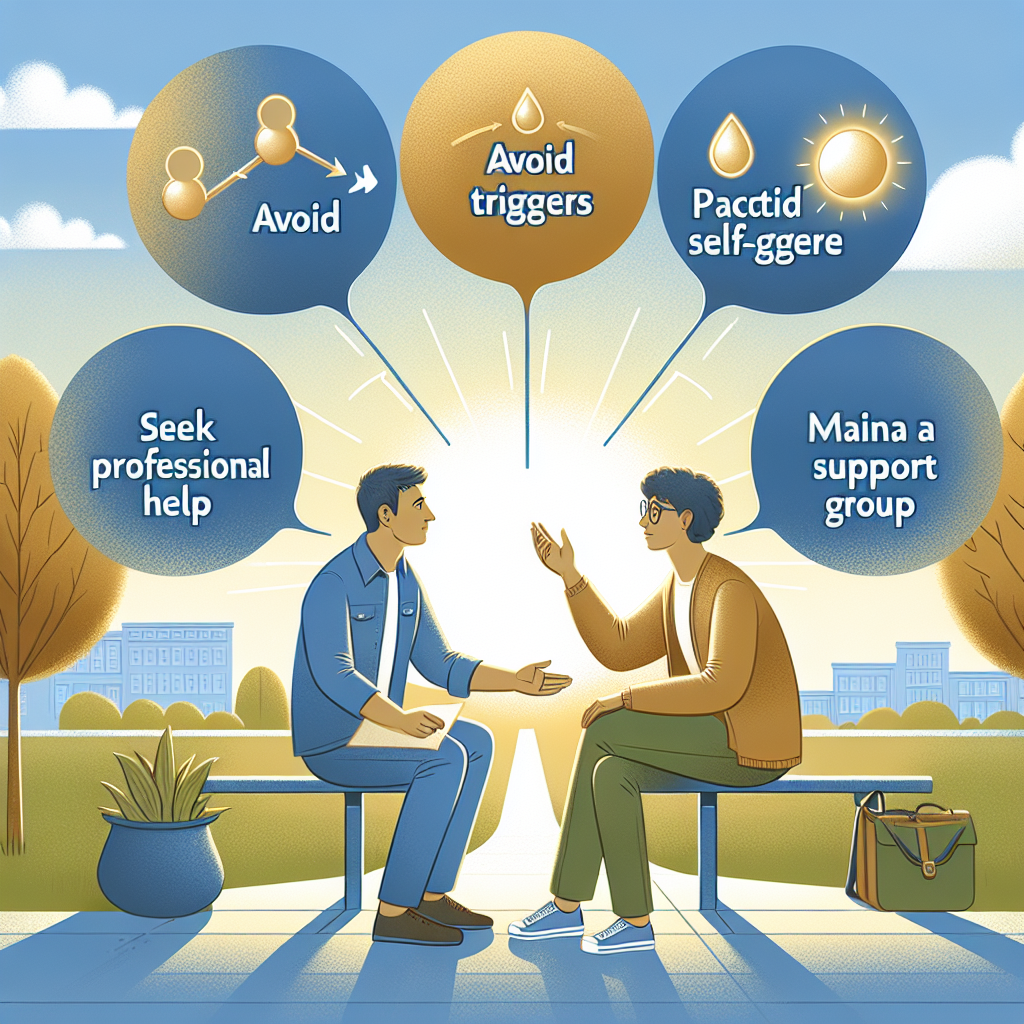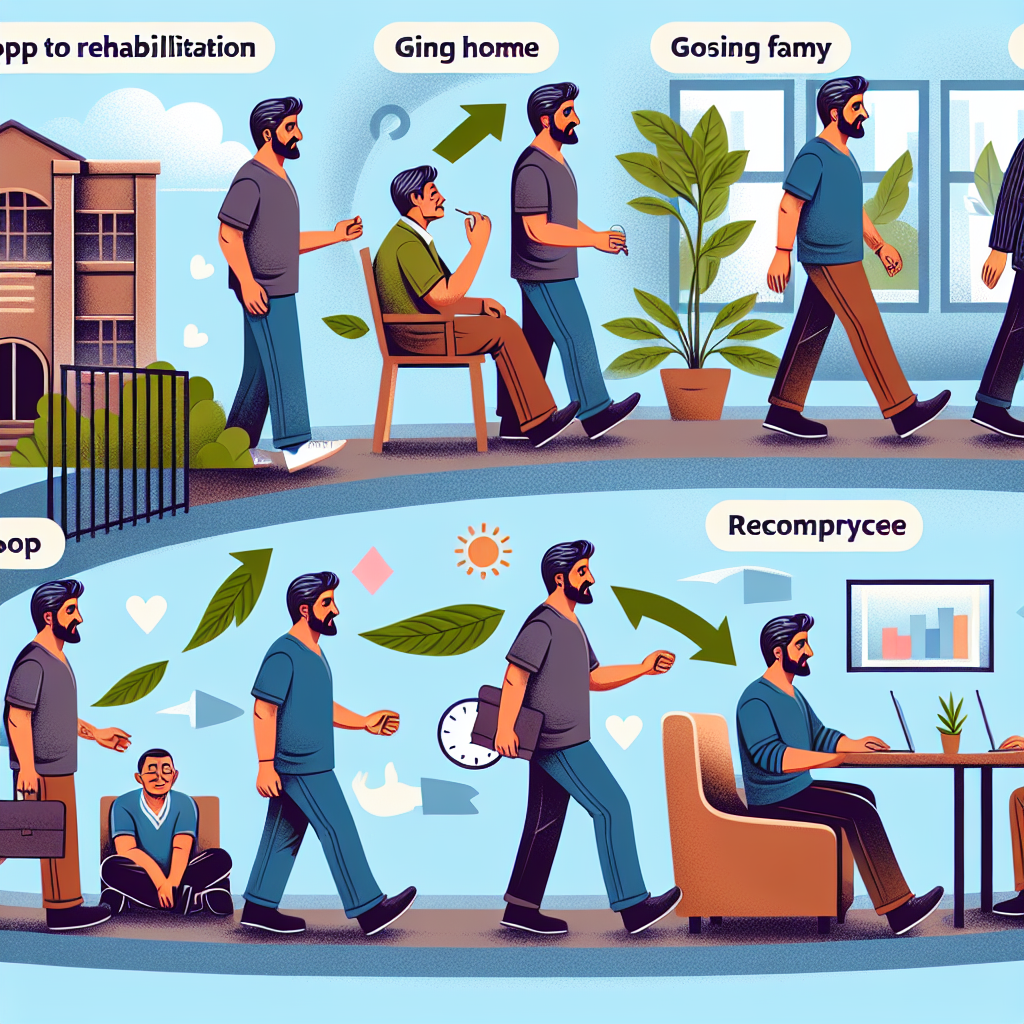-
Table of Contents
“Empower Your Journey: Navigating Social Events with Confidence in Cocaine Addiction Recovery”
Introduction

Navigating social events during cocaine addiction recovery can be a challenging yet crucial aspect of maintaining sobriety and rebuilding a fulfilling life. Social gatherings often present triggers and temptations that can jeopardize recovery efforts, making it essential to approach these situations with careful planning and strategies. This guide offers practical tips to help individuals in recovery manage social interactions, set boundaries, and find supportive environments that foster their journey towards lasting sobriety. By implementing these strategies, those in recovery can confidently participate in social events while safeguarding their well-being and commitment to a drug-free life.
Setting Boundaries: How to Politely Decline Invitations
Navigating social events during cocaine addiction recovery can be a challenging endeavor, especially when it comes to setting boundaries and politely declining invitations. The journey to sobriety is a deeply personal one, and it requires a steadfast commitment to maintaining a healthy environment. One of the most crucial aspects of this journey is learning how to set boundaries effectively. This not only protects your well-being but also helps you stay focused on your recovery goals.
Firstly, it is essential to recognize that saying “no” is a powerful tool in your recovery arsenal. It is not a sign of weakness but rather a testament to your strength and dedication to a healthier lifestyle. When you receive an invitation to a social event, take a moment to assess the situation. Consider whether the environment will be conducive to your recovery or if it might pose a risk. If you determine that attending the event could jeopardize your progress, it is perfectly acceptable to decline the invitation.
When declining an invitation, it is important to be honest yet tactful. You do not need to divulge every detail of your recovery journey, but a simple and straightforward explanation can go a long way. For instance, you might say, “Thank you for the invitation, but I am focusing on my health right now and need to avoid certain environments.” This approach is respectful and clear, allowing others to understand your priorities without feeling offended.
Moreover, it is helpful to have a few prepared responses for different scenarios. This can alleviate the pressure of coming up with an explanation on the spot and ensure that you remain consistent in your messaging. For example, if you are invited to a party where you know there will be drug use, you might say, “I appreciate the invite, but I have other commitments that evening.” Alternatively, if you are invited to a smaller gathering, you could respond with, “I am taking some time for myself to focus on my recovery, but I hope to catch up with you soon.”
In addition to verbal responses, non-verbal communication plays a significant role in setting boundaries. Your body language, tone of voice, and eye contact can reinforce your message and convey your sincerity. Stand firm in your decision, and do not feel obligated to provide lengthy explanations or apologies. Remember, your health and recovery are paramount, and those who truly care about you will understand and support your choices.
Furthermore, it is beneficial to surround yourself with a supportive network of friends and family who respect your boundaries. These individuals can offer encouragement and understanding, making it easier to navigate social situations. If you find yourself in a position where you must attend an event, consider bringing a trusted friend who can provide support and help you stay accountable.
Lastly, practice self-compassion and recognize that it is okay to prioritize your well-being. Recovery is a journey filled with ups and downs, and setting boundaries is a crucial part of that process. By politely declining invitations that may hinder your progress, you are taking proactive steps towards a healthier and more fulfilling life.
In conclusion, setting boundaries and politely declining invitations during cocaine addiction recovery is an essential skill that requires honesty, tact, and self-awareness. By prioritizing your health and surrounding yourself with supportive individuals, you can navigate social events with confidence and continue on your path to sobriety. Remember, every “no” is a step towards a brighter, drug-free future.
Finding Sober Support: Building a Network of Understanding Friends
Navigating social events during cocaine addiction recovery can be a daunting task, but finding sober support and building a network of understanding friends can make a significant difference. The journey to recovery is often fraught with challenges, and social situations can sometimes trigger cravings or feelings of isolation. However, with the right strategies and a supportive network, you can successfully manage these events and continue on your path to sobriety.
One of the first steps in building a network of understanding friends is to seek out individuals who share similar goals and values. This can be achieved by attending support groups or recovery meetings where you can connect with others who are also committed to sobriety. These environments provide a safe space to share experiences, offer encouragement, and receive advice from those who understand the complexities of addiction. By surrounding yourself with people who are on the same journey, you can create a strong foundation of support that will help you navigate social events with confidence.
In addition to support groups, consider engaging in activities that promote a healthy and sober lifestyle. Joining clubs, sports teams, or hobby groups can introduce you to new friends who are focused on positive and fulfilling pursuits. These activities not only provide a distraction from cravings but also offer opportunities to build meaningful connections with like-minded individuals. As you develop these relationships, you will find that your social circle becomes a source of strength and motivation, helping you stay committed to your recovery.
It is also important to communicate openly with your existing friends about your recovery journey. While it may be difficult to discuss your addiction and the changes you are making, being honest with those close to you can foster understanding and support. Explain your reasons for avoiding certain social situations or substances, and let them know how they can help you stay on track. True friends will respect your choices and be willing to support you in any way they can. By setting clear boundaries and expressing your needs, you can create a supportive environment that encourages your sobriety.
When attending social events, it is crucial to have a plan in place to manage potential triggers. This might include bringing a sober friend along for support, having an exit strategy if you feel uncomfortable, or practicing responses to politely decline offers of drugs or alcohol. By preparing in advance, you can reduce anxiety and increase your confidence in handling challenging situations. Additionally, focusing on the positive aspects of the event, such as enjoying the company of friends or participating in fun activities, can help shift your attention away from potential temptations.
Another valuable strategy is to seek out sober events or gatherings specifically designed for individuals in recovery. These events provide a safe and supportive environment where you can socialize without the pressure of substance use. Many communities offer sober dances, game nights, or other social activities that cater to those in recovery. By participating in these events, you can expand your network of sober friends and enjoy socializing in a way that aligns with your recovery goals.
Ultimately, building a network of understanding friends and finding sober support is essential for successfully navigating social events during cocaine addiction recovery. By connecting with others who share your commitment to sobriety, engaging in healthy activities, communicating openly with your existing friends, and preparing for potential triggers, you can create a supportive environment that fosters your recovery. Remember, you are not alone on this journey, and with the right support, you can overcome the challenges and continue to thrive in your sobriety.
Alternative Activities: Enjoying Social Events Without Substance Use
Navigating social events during cocaine addiction recovery can be a daunting task, but it is entirely possible to enjoy these gatherings without resorting to substance use. One of the most effective strategies is to engage in alternative activities that not only keep you occupied but also enhance your social experience. By focusing on these activities, you can create new, positive memories and build a support network that understands and respects your journey.
First and foremost, it is essential to plan ahead. Before attending any social event, take some time to think about the activities that will be available and how you can participate in them without feeling the urge to use cocaine. For instance, if you are attending a party, consider bringing a friend who is also committed to sobriety. Having a sober companion can provide mutual support and make it easier to resist temptation. Additionally, you can offer to help the host with preparations or clean-up, which can keep you busy and give you a sense of purpose.
Another effective approach is to immerse yourself in conversations. Engaging in meaningful discussions can be a great way to distract yourself from cravings and build deeper connections with others. Ask open-ended questions, listen actively, and show genuine interest in what others have to say. This not only helps you stay present but also fosters a sense of community and belonging. Remember, the goal is to enjoy the company of others without relying on substances to enhance the experience.
Participating in physical activities can also be incredibly beneficial. Whether it’s dancing, playing a sport, or even just taking a walk, physical movement can help reduce stress and release endorphins, which are natural mood lifters. If the event includes activities like these, make it a point to join in. Not only will you be having fun, but you’ll also be taking care of your physical and mental well-being.
Moreover, consider exploring new hobbies or interests that can be incorporated into social events. For example, if you enjoy cooking, you could host a sober dinner party where you and your friends can experiment with new recipes. If you’re into arts and crafts, organizing a creative workshop can be a fantastic way to bond with others while staying focused on a productive task. These activities not only provide a distraction from cravings but also allow you to discover new passions and talents.
It’s also important to set boundaries and communicate your needs clearly. If you feel uncomfortable or triggered at any point during a social event, don’t hesitate to excuse yourself. Your well-being should always be your top priority. Let your friends and family know about your recovery journey and the importance of their support. Most people will be understanding and willing to accommodate your needs.
Lastly, practice mindfulness and self-reflection. After each social event, take some time to reflect on your experience. What went well? What challenges did you face? How did you handle them? This self-awareness can help you identify patterns and develop strategies for future events. Celebrate your successes, no matter how small, and learn from any setbacks.
In conclusion, enjoying social events without substance use during cocaine addiction recovery is entirely achievable with the right mindset and strategies. By planning ahead, engaging in meaningful conversations, participating in physical activities, exploring new hobbies, setting boundaries, and practicing mindfulness, you can create a fulfilling and sober social life. Remember, every step you take towards sobriety is a victory, and each social event is an opportunity to strengthen your resolve and build a brighter future.
Managing Triggers: Strategies for Staying Strong in Social Situations
Navigating social events during cocaine addiction recovery can be a daunting task, but with the right strategies, it is entirely possible to manage triggers and stay strong. The first step in managing social situations is to be aware of your triggers. Understanding what specifically tempts you to use cocaine is crucial. These triggers can be people, places, or even certain activities. By identifying them, you can develop a plan to either avoid or cope with these situations.
One effective strategy is to bring a supportive friend or family member to social events. Having someone who understands your journey and can provide encouragement can make a significant difference. This person can act as a buffer, helping you navigate conversations and situations that might otherwise be challenging. Additionally, they can offer a sense of accountability, reminding you of your commitment to recovery.
Another important tactic is to practice saying no. It can be difficult to refuse offers of drugs or alcohol, especially in a social setting where peer pressure is prevalent. However, rehearsing your responses in advance can make it easier to decline. You might say something like, “I’m focusing on my health right now,” or “I’m not using anymore.” These statements are straightforward and can help you stand firm in your decision.
Moreover, it is beneficial to have an exit plan. If you find yourself in a situation where the temptation becomes overwhelming, having a pre-determined way to leave can be a lifesaver. This might involve driving your own car so you can leave at any time, or arranging for a friend to pick you up if needed. Knowing that you have a way out can reduce anxiety and help you feel more in control.
In addition to these strategies, it is essential to engage in self-care before and after social events. This might include activities such as meditation, exercise, or journaling. These practices can help you stay grounded and focused on your recovery goals. Furthermore, they can provide a healthy outlet for any stress or emotions that arise from social interactions.
It is also helpful to set boundaries with friends and family. Let them know about your recovery and the importance of avoiding certain triggers. Most people will be supportive and understanding, and those who are not may need to be distanced from your life for the time being. Setting these boundaries can create a safer environment for you to enjoy social events without the constant worry of encountering triggers.
Additionally, consider attending support group meetings regularly. These groups provide a sense of community and understanding that can be incredibly empowering. Sharing your experiences and hearing from others who are on a similar journey can offer valuable insights and encouragement. Support groups can also provide practical advice for handling social situations and managing triggers.
Lastly, always remember to celebrate your successes, no matter how small they may seem. Each social event you navigate without succumbing to temptation is a victory. Acknowledge your progress and be proud of the strength and resilience you are building. Recovery is a journey, and every step forward is a testament to your commitment and courage.
By employing these strategies, you can manage triggers and stay strong in social situations. With awareness, preparation, and support, you can continue to enjoy social events while maintaining your path to recovery.
Q&A
1. **How can I prepare for social events to avoid triggers?**
– Plan ahead by identifying potential triggers and creating a strategy to handle them, such as bringing a sober friend for support or having an exit plan if you feel uncomfortable.
2. **What should I do if someone offers me cocaine at a social event?**
– Politely but firmly decline, and have a prepared response ready, such as “No thanks, I’m not using anymore,” to avoid feeling pressured in the moment.
3. **How can I handle anxiety about attending social events during recovery?**
– Practice relaxation techniques like deep breathing or mindfulness before the event, and consider attending a support group meeting beforehand to boost your confidence.
4. **What are some alternatives to attending social events where drugs might be present?**
– Engage in sober activities such as joining a sports league, attending a hobby class, or participating in community events that do not involve substance use.
Conclusion
Navigating social events during cocaine addiction recovery requires careful planning and self-awareness. Key tips include setting clear boundaries, having a support system in place, avoiding high-risk situations, practicing refusal skills, and prioritizing self-care. By implementing these strategies, individuals can better manage social interactions and maintain their commitment to recovery.



